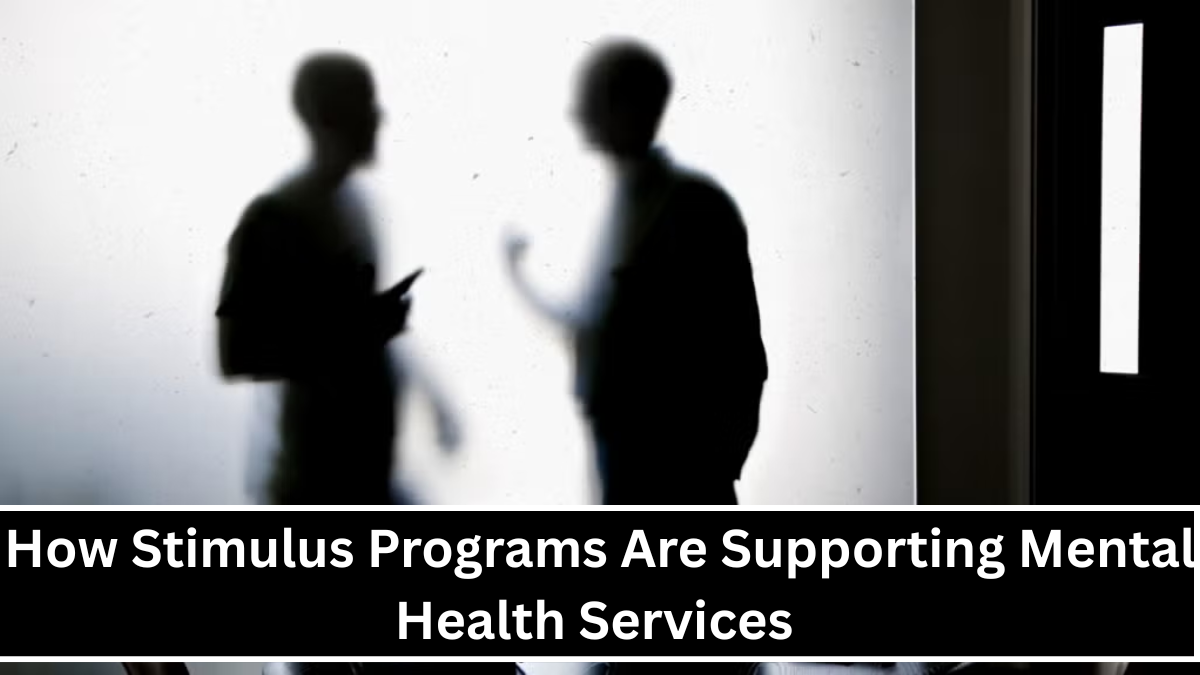Mental health has become a top concern around the world, especially after the COVID-19 pandemic. People of all ages are facing stress, anxiety, depression, and emotional struggles. But getting help isn’t always easy. Many people don’t have access to therapy, counseling, or crisis care because of cost or long waiting times. To help solve this growing issue, governments have launched stimulus programs—special funding plans that provide money and resources to improve mental health services. These programs are making it possible for more people to get the help they need, especially in schools, hospitals, and communities.
Expanding Access to Mental Health Services
One of the main goals of stimulus programs is to make mental health support available to more people. In many countries, including the United States, special funds have been directed toward community health centers, telehealth services, and school counseling programs. These funds help clinics hire more therapists, set up mental health hotlines, and launch digital therapy platforms. This means that even people living in rural or low-income areas can get help from trained professionals without having to travel long distances.
In schools, stimulus money has been used to add more school psychologists and counselors. With students facing stress from online classes, social isolation, and family problems, this support is more important than ever. These professionals help students cope with anxiety, bullying, and emotional challenges—making schools safer and more supportive places to learn. Stimulus funds have also helped create or improve mental health apps and online support platforms, allowing people to access therapy or guidance from their smartphones. This digital shift makes care more flexible and private, which is especially helpful for teens and young adults who may feel shy about face-to-face sessions.
Improving the Mental Health Workforce and Services
Another way stimulus programs support mental health is by strengthening the workforce. Many mental health professionals are overworked and unable to take on new patients. Stimulus funding is being used to train more therapists, social workers, and counselors, and offer incentives to work in under-served areas.
These funds also support mental health training for non-health professionals, like teachers, police officers, and community leaders. When more people in society understand mental health basics, it reduces stigma and helps more individuals get early support before problems become serious. Additionally, stimulus programs help expand crisis response systems. Emergency teams are being trained to respond to mental health emergencies without relying only on police. This reduces unnecessary arrests and provides people in crisis with the care they truly need—therapy, medication, and support instead of punishment.
Stimulus programs have become a lifeline for mental health services. They provide the funding needed to expand access, train professionals, and build stronger support systems for individuals, families, and communities. While more work is still needed, these programs have already created real change by reaching those who were once left out. Mental health is just as important as physical health, and thanks to stimulus support, more people are finally able to get the help they need. A healthier mind leads to a stronger society—and investing in mental health is an investment in everyone’s future.
FAQ’s:
Q1. What is a stimulus program?
A1. A stimulus program is government funding used to support public services, like healthcare and education, during emergencies or economic struggles.
Q2. How do stimulus funds help mental health services?
A2. They provide money to hire more counselors, expand therapy services, create mental health apps, and train workers to help more people.
Q3. Who benefits from these mental health stimulus efforts?
A3. Children, students, adults, and elderly people in need of mental health support—especially those in rural or low-income areas—benefit from better access and care.
Q4. Are mental health apps part of these programs?
A4. Yes, many programs fund digital platforms and apps that provide therapy, chat support, and mental health guidance, especially for younger users.
Q5. Will these programs continue in the future?
A5. While stimulus programs are often temporary, their success could encourage governments to invest in permanent mental health improvements.
